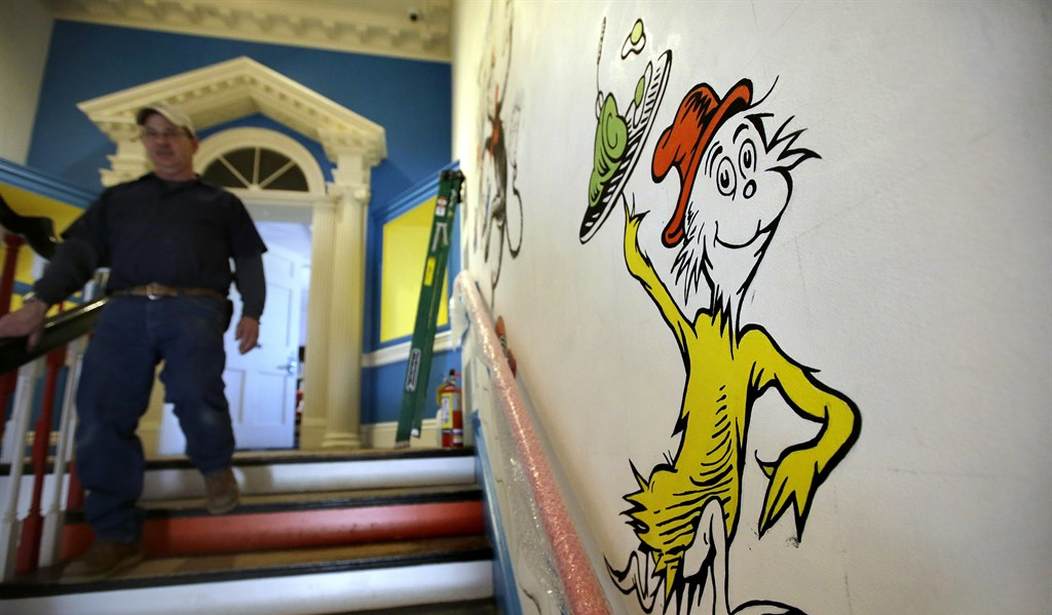The attack on Dr. Seuss’s books continues as now Dr. Seuss Enterprise itself has ceased the publication of several of the Seuss titles.
According to Fox News, the titles “And to Think That I Saw It on Mulberry Street,” “If I Ran the Zoo,” “McElligot’s Pool,” “On Beyond Zebra!,” “Scrambled Eggs Super!,” and “The Cat’s Quizzer” will no longer be published by the company over its depictions of certain cultures, including Arabian, Asian, and African cultures.
These are apparently the images that #DrSeuss is being cancelled over. pic.twitter.com/hxJlFntbSK
— Brandon Morse (beep/boop) (@TheBrandonMorse) March 2, 2021
The best anti-racism allegory for children ever written. pic.twitter.com/ooVJnMFOap
— David Burge (@iowahawkblog) March 2, 2021
According to PBS, Seuss was actually into making political statements through his work, and that even some of his children’s books have political messages in them:
Dreamer or cynic? Grandfather or grinch? It seems that Dr. Seuss was all of these things and more, a complex, talented and passionate man who struggled to remain hopeful in spite of the “dissemination of stupidity” he saw all around him. Above all, Dr. Seuss and his work were intrinsically political. A self-proclaimed master of “logical insanity,” the author of such fanciful tales as Green Eggs and Ham and The Cat in the Hat devoted much of his considerable talent and influence to advocating political and social change. From condemning isolationism and attacking anti-Semitism to his later works for literacy, the environment, and against the arms race, Dr. Seuss’s most popular works reflect his passion for fairness, democracy and tolerance.
But this is a side of Dr. Seuss’s work that is rarely discussed. Most Americans don’t know, for example, that during World War II he drew editorial cartoons for the left-wing New York newspaper PM, or that he made army propaganda films with Frank Capra. Many readers didn’t know that The Sneetches was inspired by Seuss’s opposition to anti-Semitism, that Horton Hears a Who! was a political statement about democracy and isolationism, or that The Lorax and The Butter Battle Book were parables about the environment and the arms race. Dr. Seuss’s true genius may lie in the fact that all of this was done with such humor and finesse, that few realized he was being political at all.
Despite the fact that he held these stances, it’s said that Seuss held anti-Asian sentiments during World War 2 and would draw cartoons with negative depictions of them. At the time, we were at war with Japan and such depictions weren’t considered taboo as they are today.
Still, Seuss seemed to be against racism, considering his opposition to antisemitism.
This brings one to question whether his depictions of other cultures in his books were intentionally malicious or just cultures drawn in his silly manner. It would appear our culture, as it currently is, isn’t willing to take the time to figure that out.














Join the conversation as a VIP Member